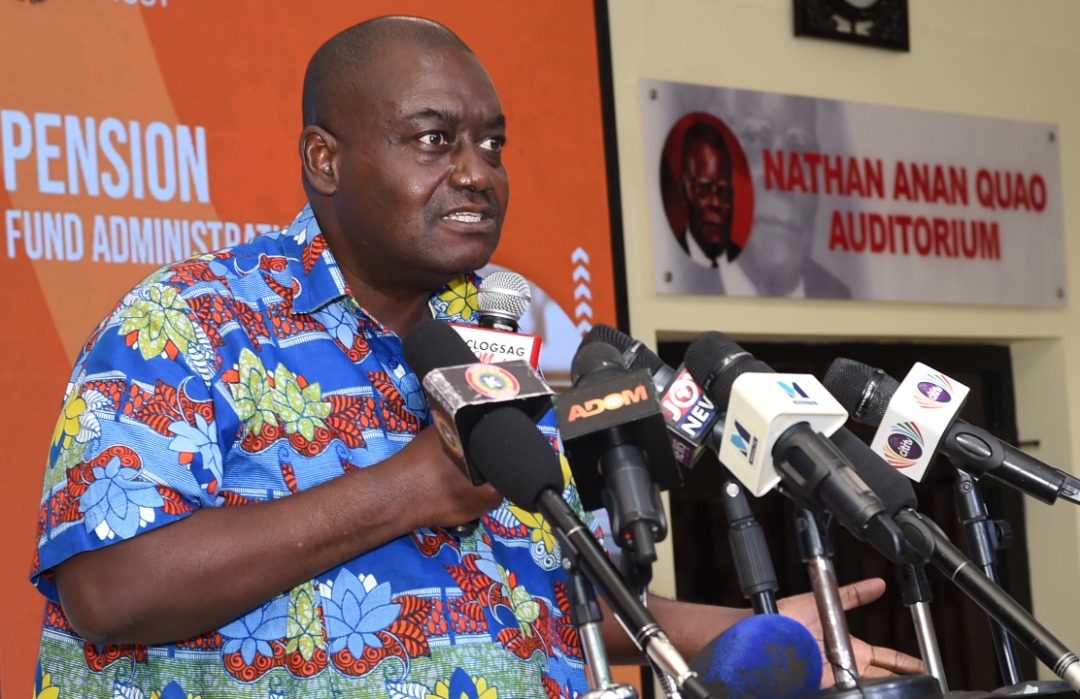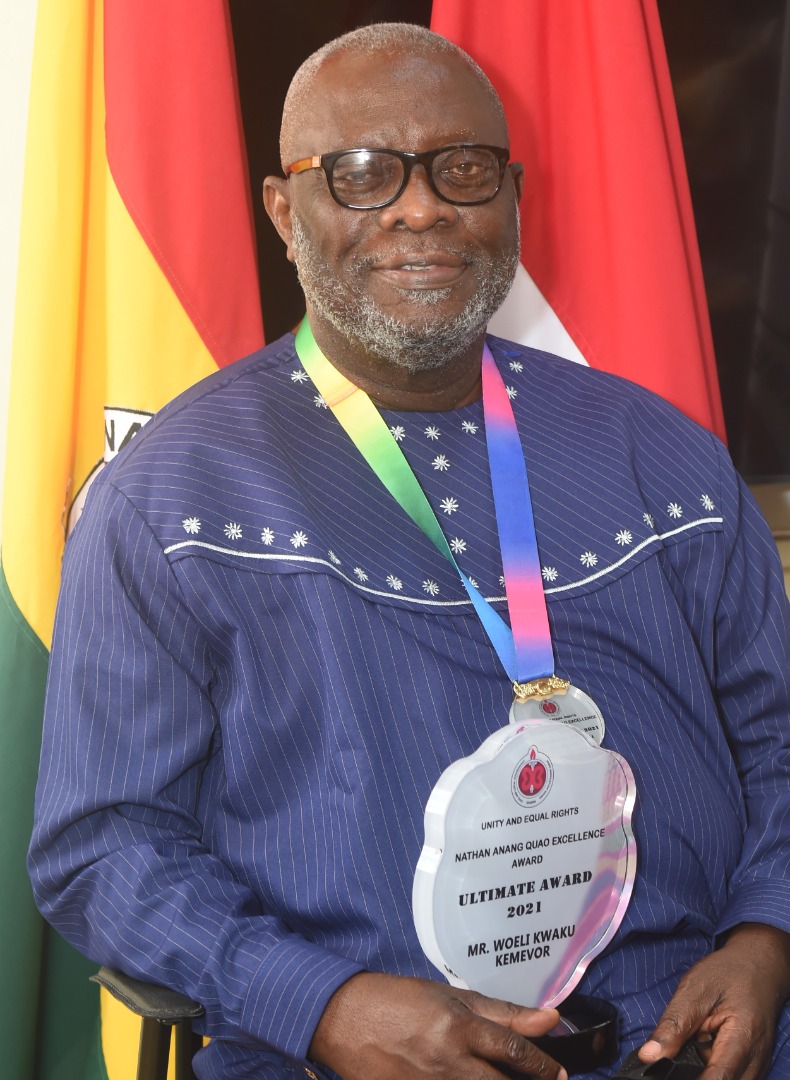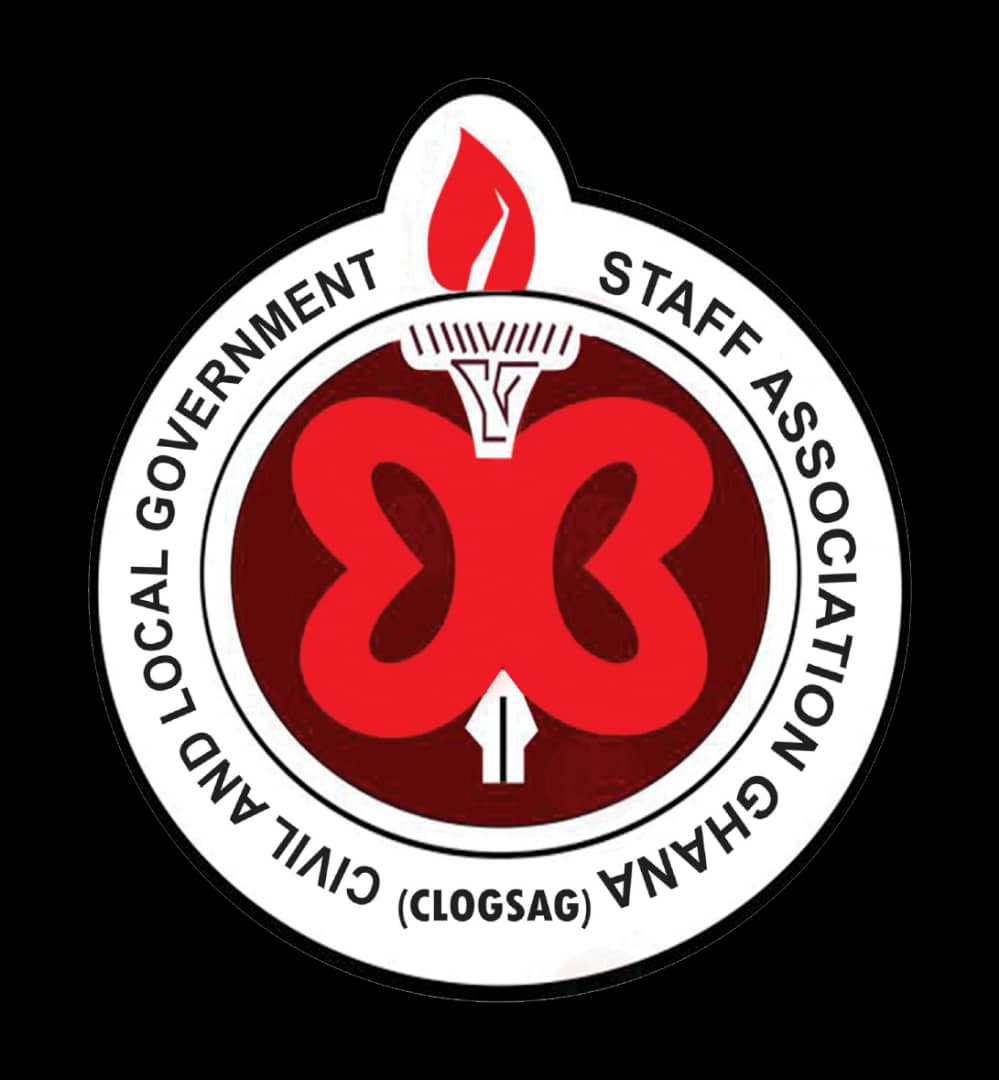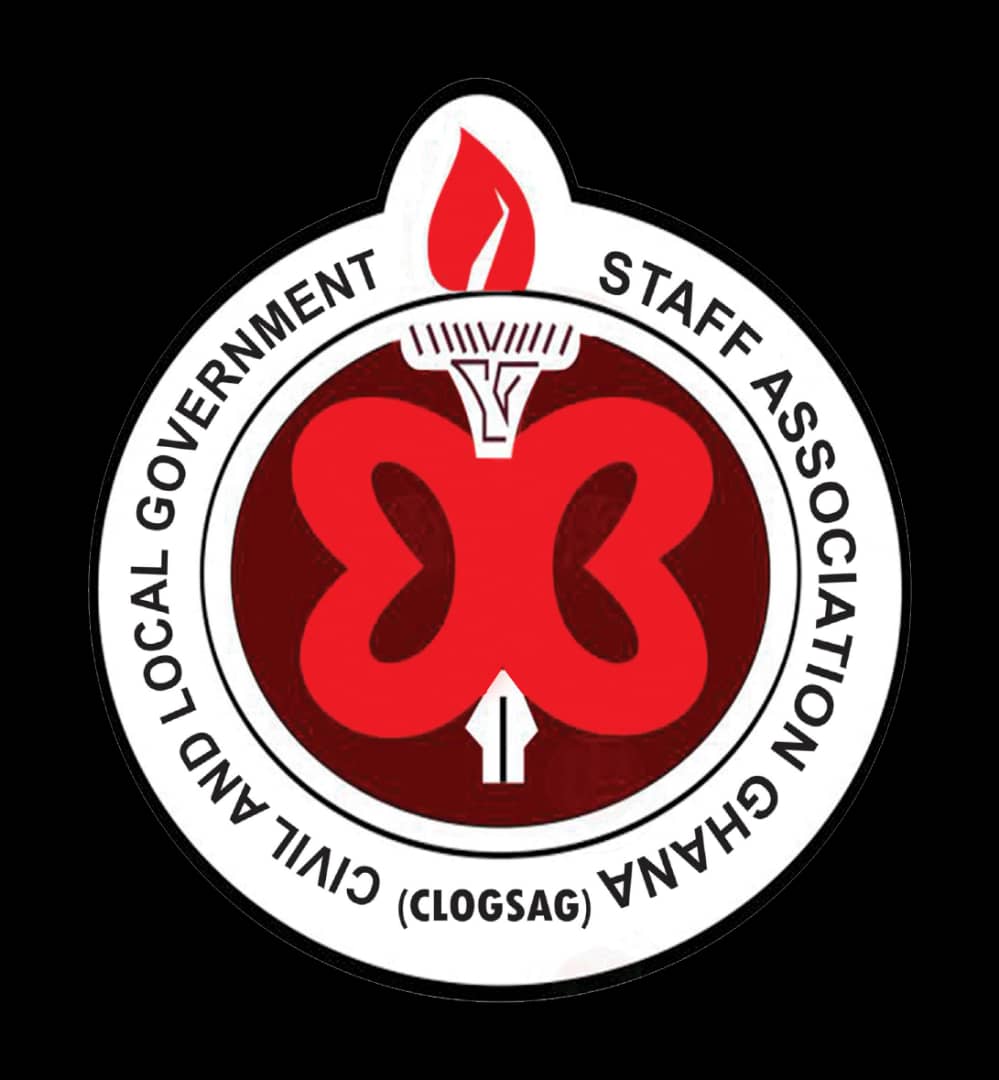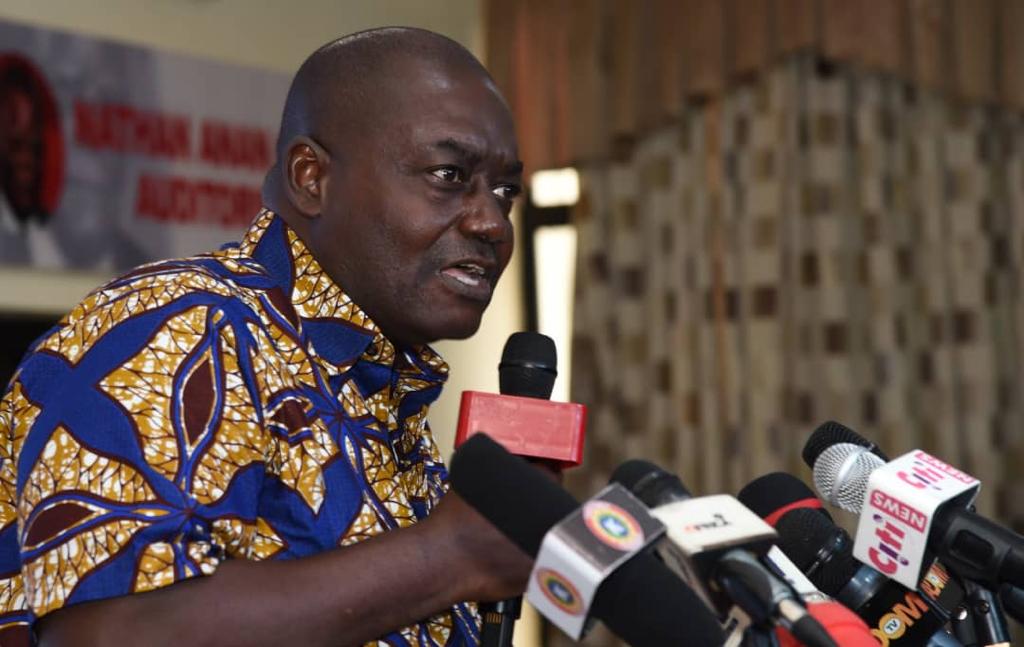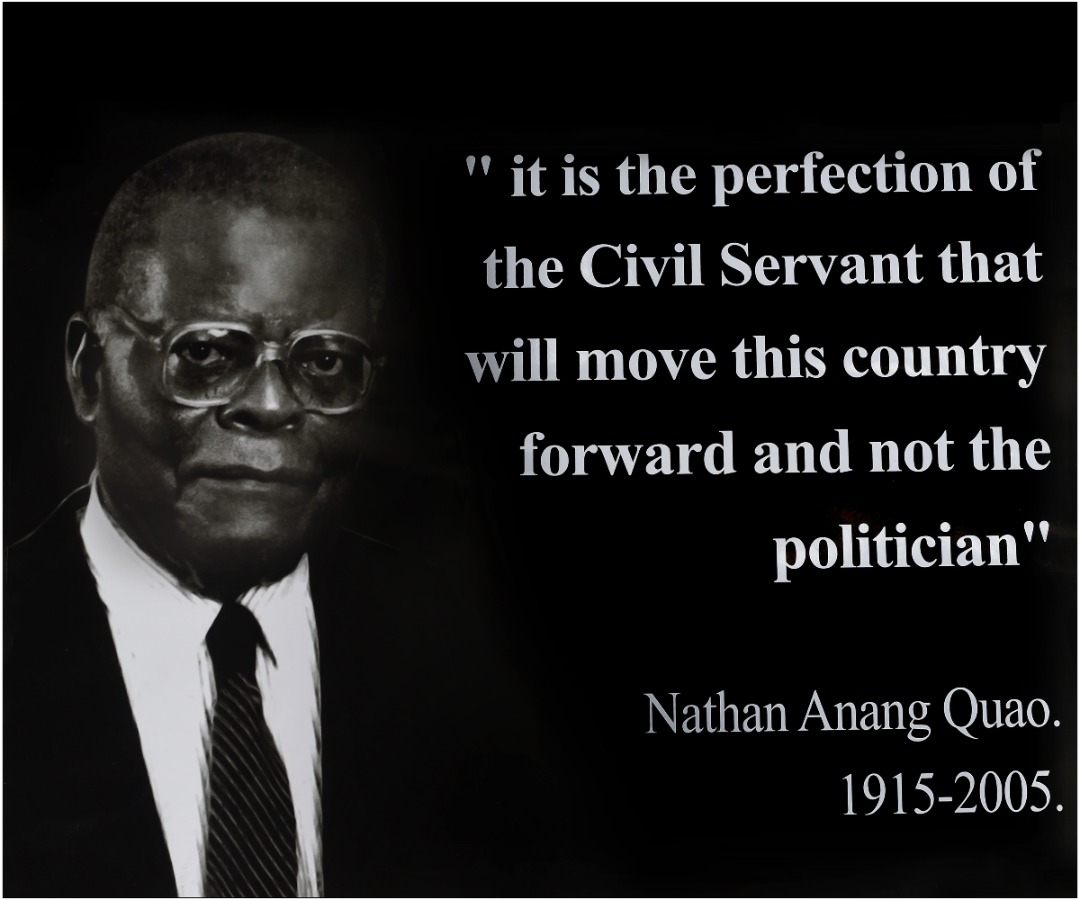
 4th October, 2022
4th October, 2022
News
Relook at the critical role of the Ghana Civil Service to ensure National Development – CLOGSAG
The
Civil and Local Government Staff Association, Ghana (CLOGSAG), has called on
the Public Services Commission (PSC) to put appropriate measures in place to ensure
the implementation of Article 197 which provides that the PSC “may, subject to
the approval of the President, make regulations, by constitutional instrument,
for the effective and efficient performance of its functions under this
Constitution or any other law”.
The Executive Secretary, CLOGSAG, Mr. Isaac Bampoe Addo,
delivering a Lecture at the 5th Nathan Anang Quao Lectures held in Accra,
dubbed “Abuse of Political Power in the Civil Service: The Bane of National
Development”, bemoaned that although Ghana has been touted as a beacon of
democracy, good governance and a story of hope for Africa and other developing
nations in the world, the nation (Ghana) appears however not to have a strong,
effective and efficient Civil Service.
He cited Politicisation as one of the contributing factors
that has compromised the quality and effectiveness of the Ghana Civil Service.
Adding, the intensity of political interference in the
fourth Republic, can be ascribed to some factors, not limited to;
Winner-Takes-All nature of the 1992 Constitution; Creation of “jobs for the
boys”; Campaign resources and loyalty; Moneycracy associated with political
campaigning; patronage and clientelism as well as involvement of bureaucrats in
politics.
Acknowledging that globally, the Civil Service
administration cannot be divorced from political influence, he stressed that
Politicisation has indirectly affected the mandate of most Civil Service
organisations, stifled development, affected Civil Service reforms and has
“injured” Ghana’s fledgling democracy.
The Association, therefore, called for a review of the
President’s power of appointment while strengthening existing laws to help
minimize Politicisation in Ghana’s bureaucratic set-up.
Touching on specific levels of abuse of political power,
the Executive Secretary lamented that, “in our quest to be professional in our
work and stick to the principles underpinning the Service, we end up courting
disaffection from the political divide”.
“Compliance with the policies of a particular government or
politician also creates a delicate situation for most Civil Servants,
particularly the senior ones as such work ethic is misconstrued as allegiance
to a particular political divide”, he added.
Mr. Bampoe Addo hinted that politicians have frowned upon
the existing bureaucracy within the Civil Service structure as it is perceived to
be deliberate delay tactics which in turn, make politicians non-adhering and non-complying
with the tenet of the Civil Service Principles.
According to CLOGSAG, an identified instance of intrusion
of the politicians in the Civil Service activities is the creation of parallel
Institutions staffed with party apparatchiks to rival the Services in the
implementation of government policies and programmes. This he said, to a large
extent duplicated the efforts and services offered by staff of the Civil and
Local Government Services.
He also noted the recruitment of party apparatchiks as
consultants to perform routine Civil Service functions and paying them higher
unearned salaries, thus ballooning the Civil Service wage bill as reported in
the 2020 Auditor-General’s report for MDAs and MMDAs. Saying, “hindsight
evidence reveals that the so called ‘ghost names’ that cannot be identified in
the Civil Service payroll have turned out to be Personal Assistants of
Ministers”.
According to the Association, another situation which is a
clear example of abuse of political power is the political appointments of
Chief Directors and Heads of Departments to the Civil and Local Government Services
which contravenes the Supreme Court ruling (writ no. J1/16/2016, 14th June,
2017).
The Executive Secretary, hinted that a key function taken
over by the political appointees is furthermore in the area of Policy Initiation
and Formulation. “Instances of this can be cited in almost all the Ministries
leading to weak Policy Coordination and Management”, he disclosed.
He further identified, among others that, succession plans
for the Services are truncated by political appointments and institutional
arrangements which do not go in tandem with the dictates of regulatory
frameworks. “Ultimately, these interferences lead to loss of Institutional
memory which is very important for the development and progress of the Services
and Policy Management”, he decried.
Speaking on the way forward, CLOGSAG proposed that
appropriate steps should be undertaken to ensure that Conditions of Service is
enhanced and maintained at the level that would exact the requisite performance
standards.
Also, Politicians must desist and resist the temptation of
creating avenues of employment for their teeming supporters to avoid
unnecessary duplications of efforts and wanton dissipation of scarce government
resources.
A review of the laws/Civil and Local Government Services
Acts as well as insulation of the Services from direct political interference
and machinations, among others, were recommended.
He reiterated that no government can achieve its objectives
without a well-motivated, properly structured and well-resourced administrative
machinery.
CLOGSAG, therefore, maintained that the pivotal role of the
Civil Service in National Development as the wheel of Government machinery
cannot be overlooked. Thus, the need for the PSC to regulate the various policy
requirements of the Services as provided by the constitution in Article 197.
This, he said, will to a very large extent, insulate the Civil Service from
political abuse.
